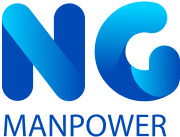Construction businesses work in a fast environment where every delay costs money. And where every skill gap can stall a project. Every firm faces the same challenges. A few of them are a shortage of skilled workers, project delays, and rising operational costs. Therefore, the right team building becomes the heart of success.
That’s where a vital question arises: Should you build a team in-house? Another option is to outsource if you lack the required skills. Both options have strong advantages. However, they too bring a fair share of challenges. In-house hiring vs. manpower outsourcing gives you a culturally fit and loyal candidate. You’ll gain long-term value from him/her. In comparison, outsourcing delivers cost efficiency, flexibility, and faster access to skilled manpower.
Deciding between the two is more than an HR decision. This decision impacts project timelines, costs, profitability, and others. Construction companies have tight deadlines and thin margins. Therefore, the workforce model can either make or break a project.
The blog breaks down everything, including:
- What manpower outsourcing really means
- How in-house hiring works
- Their pros and cons, key differences, and
- Practical considerations for the construction industry.
By the end, you’ll know which approach or combination of both suits your business goals the best.
What is Manpower Outsourcing?
Manpower outsourcing is when construction firms partner with third-party staffing agencies or manpower suppliers to get workers for specific projects, timelines, or technical needs. The agency recruits, pays, and manages workers rather than hiring them on the company payroll. This way, the construction company can focus on projects. Relying on agencies to handle HR, payroll, and compliance.
Outsourcing is common in construction businesses for roles that require specialized skills. It also works well when workers are needed for a limited duration.
For instance:
Outsourcing provides a ready-made solution to a firm that needs extra welders for 3 months or a site engineer for a project.
Typical outsourced roles in construction include:
- Site laborers and helpers
- Electricians, welders, and technicians
- Safety supervisors
- Project site engineers
- Equipment operators
Construction companies save time and effort on recruitment by using outsourcing. The best part? They are still getting skilled professionals ready to work.
How Outsourcing Works in Construction?
The outsourcing process is straightforward. The construction firm first partners with a manpower agency. The agency handles recruitment and background checks. They manage all legal paperwork. The agency deploys workers to the construction site after the contracts are signed. The agency also takes care of salaries, insurance, and compliance throughout the project.
This frees stress over HR or payroll for the company. Only they pay the agency for outsourced services and focus on project execution.
What is In-House Hiring
In-house hiring is the traditional way of building a workforce, where the construction firm directly recruits, trains, and manages its employees. These workers are permanent staff. They are fully integrated into the company and committed to long-term growth.
In-house recruitment means the company bears all HR responsibilities. Your in-house team is responsible for recruiting candidates and managing payroll. They are also expected to train new-hires and follow compliance. As a manager, you can better maintain tighter control and build loyalty within your in-house team.
In construction, typical in-house roles include:
- Project managers
- Permanent site engineers
- Quantity surveyors
- Admin staff
- Safety officers
- Senior supervisors
These are core team members. Those who stay with the company across multiple projects. It ensures continuity and culture alignment.
Recruitment & Training in Construction Firms:
Construction firms manage the entire process when hiring in-house. They advertise vacancies and screen candidates. Conducting interviews and finalizing employment contracts are also their duty. New workers undergo training to align with safety standards under their supervision. They seek company values and learn project methods under their supervision.
This process takes time and effort. However, the result is far better. In the end, you’ll get a more committed workforce. Different from outsourced staff who may leave after one project. Your in-house team often sticks around. They carry valuable experience into future projects.
Reasons Businesses Rely on Manpower Outsourcing
Why do so many construction firms prefer outsourcing? The answer lies in speed, cost efficiency, and flexibility. Outsourcing helps businesses quickly scale up for a new project without long recruitment cycles. It also reduces the financial burden of permanent payrolls.
Cost Efficiency
Outsourcing saves money. Because companies don’t need to invest in recruitment campaigns. Not even ready to spend on training programs or long-term employee benefits. When you need any specific role, you pay only for the manpower. Saving you from the pressure of monthly salaries once the project ends.
Access to Skilled Workforce
Outsourcing gives construction firms instant access to experienced workers. They can quickly hire a crane operator, a plumber, or a specialized technician. Useful for short-term needs or niche roles.
Flexibility & Scalability
Projects in construction rarely follow the same pattern. There’s a time when you need 200 workers on site, and sometimes you need only 20. In any of the scenarios, outsourcing allows you to scale your team up or down based on project demands.
Reduced Compliance Burden
Recruitment, visas, labor contracts, and insurance are all handled by the outsourcing agency. For construction firms working in regions with strict labor laws, this is a huge relief.
Key Drawbacks of Manpower Outsourcing
Outsourcing comes with risks, besides so many advantages. Construction firms must weigh these drawbacks before making a decision.
Lack of Loyalty & Commitment
Workers who are outsourced see their role as temporary. They may not share the company’s long-term vision. That’s why they don’t show the same level of dedication as permanent employees.
Quality Control Issues
Since outsourced staff are managed by agencies, construction firms sometimes face challenges in maintaining consistent work quality. Not every worker may meet the same standard.
Limited Control Over Workforce
In outsourcing, workers technically report to the agency. They are not bound to resort to the construction company. It limits the direct control project managers have over daily tasks and discipline.
Reasons Businesses Rely on In-House Teams
Many construction companies are interested in investing in in-house teams. The reason behind this is the value they get. They can have stability, culture fit, and knowledge retention by outsourcing.
Stronger Control & Supervision
Managers can directly monitor employees and give instructions. They can better track performance, even without going through a third-party agency.
Long-Term Loyalty & Culture Fit
Usually, in-house employees grow with the company. They align with its mission and feel a sense of belonging. It leads to stronger loyalty and better teamwork.
Better Project Continuity
In-house staff stay when projects end. Their knowledge carries over into new projects. It guarantees smoother transitions and continuity.
Specialized Knowledge Retention
Your in-house team has technical knowledge and safety practices. They have already learned lessons to stay within the organization. It makes future projects more efficient.
Major Cons of In-House Teams
In-house recruitment builds strong teams. It also requires significant investment and responsibility.
High Recruitment & Training Costs
It is expensive to recruit skilled workers. You have to give them regular training programs and salaries. Your workers are expected to get employee benefits. Therefore, the costs rise quickly.
Less Flexibility
In-house teams are harder to scale. Companies may still have to pay salaries if workloads drop. This can hurt cash flow.
Compliance & HR Burden
Labor laws, payroll, leave management, and visas all fall on the company’s shoulders. It demands time and resources.
In-House vs. Outsourced Manpower: Key Differences
A quick comparison between the in-house and outsourcing to help you see the differences side by side:
| Factor | Manpower Outsourcing | In-House Hiring |
| Cost | Lower, pay per project | Higher, includes salaries & benefits |
| Flexibility | High, scale up or down easily | Limited, fixed workforce |
| Control | Limited oversight | Full control |
| Commitment | Short-term focus | Long-term loyalty |
| Training | Handled by the agency | Handled by the company |
| Scalability | Fast and easy | Slower, needs planning |
| Best for | Short-term projects, seasonal work | Large projects, long-term growth |
What is the Best Option for Construction Firms?

If you want loyalty and continuity from your workers, in-house is the best for you. Need flexibility and lower costs? Then, go for outsourcing. In short, the answer will point you to the right strategy.
Regional and Industry Considerations:
In this section, we’ll discuss what industries usually apply and consider using either in-house recruitment or outsourcing.
Middle East Construction Market
In regions like the UAE, Saudi Arabia, and Qatar, outsourcing is common. Mega-projects require thousands of workers, and agencies supply them quickly. This makes outsourcing the backbone of the Gulf’s booming construction sector.
Small vs. Large Construction Firms
Smaller firms often rely more on outsourcing because it helps manage costs. Larger firms, on the other hand, use a mix. They implement an in-house leadership team combined with outsourced manpower for site work.
Compliance & Labor Laws
Labor laws vary by region. In the Middle East, companies must carefully follow visa sponsorship and labor rights rules. Outsourcing agencies often simplify this by handling compliance.
Last Thoughts:
For a construction business, workforce strategy is the most important decision. In-house recruitment builds loyalty and stability. You have more control over your workers. Outsourcing gives you flexibility and leads to cost savings. You can access instant, skilled manpower.
Confused enough about what to choose between in-house hiring and outsourcing? The solution is to implement both. Many successful firms blend both. So they can keep a permanent core team and outsource for specific roles. This hybrid approach reduces costs. It also ensures quality and consistency.
At the end, the choice depends on your budget and project type. It is also based on your construction business workforce requirements. Construction companies can make smarter decisions. This keeps their projects on track by evaluating these factors.
Require help with manpower outsourcing? Look no further than Ng Manpower. Our team will find and hire the best workers for your construction business. Get in touch today and strengthen your workforce!
FAQs
Which is better for a construction project, in-house hiring or outsourcing?
It depends on your goals. In-house hiring builds loyalty and control. On the other hand, outsourcing offers flexibility and lower costs.
How can outsourcing reduce construction project costs?
Outsourcing saves recruitment, training, and benefit expenses. It means you only pay for skilled workers when needed.
Does in-house hiring improve construction quality and control?
Yes. In-house teams guarantee stronger supervision with cultural alignment and continuity across many projects.
Can outsourcing help meet tight construction deadlines?
Absolutely. Outsourcing provides quick access to skilled manpower. It allows firms to scale teams fast for urgent projects.
What risks should construction companies consider before outsourcing manpower?
Construction companies must consider key risks, including:
- Limited control
- Inconsistent quality, and
- Lower worker commitment compared to in-house teams.
Is a hybrid model of in-house and outsourcing best for construction companies?
Combining a core in-house team with outsourced manpower helps achieve stability. You’ll have more flexibility and cost efficiency.





